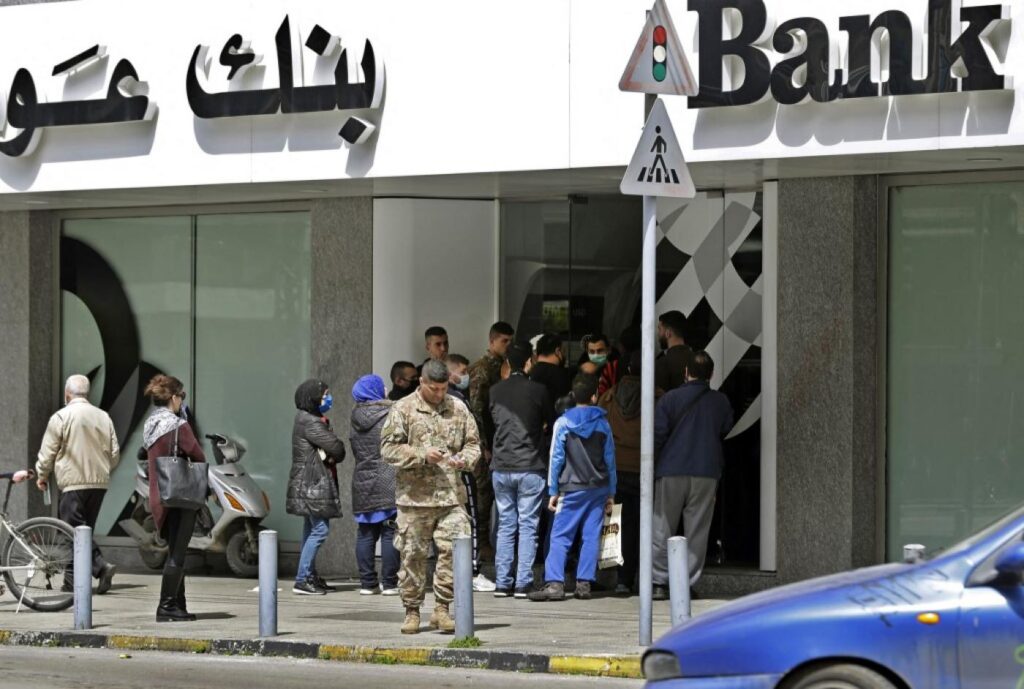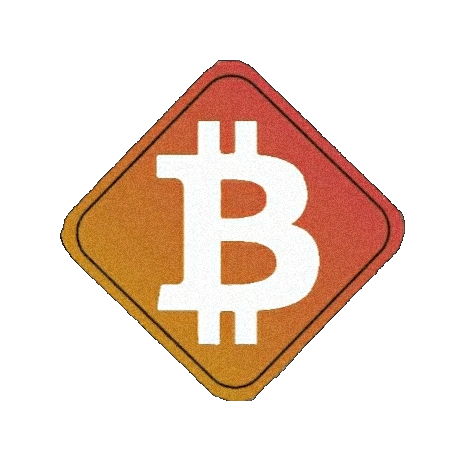Adoption. https://t.co/WBNNku6Lpd
— CZ 🔶 BNB (@cz_binance) November 22, 2022
Lebanese Locals Turn to Bitcoin and Tether to Earn, Save, and Spend as Hyperinflation Takes Over
Bitcoin is Hope for Lebanon
#Bitcoin is hope for #Lebanon, where the currency has lost 96% of its value vs USD and the banks have failed.https://t.co/DkKrC4zgGY
— Michael Saylor⚡️ (@saylor) November 5, 2022
Getting hitched, Satoshi style: A Bitcoin-themed wedding in Lebanon
By: Joseph Hall
https://cointelegraph.com/news/getting-hitched-satoshi-style-a-bitcoin-themed-wedding-in-lebanon
A Bitcoiner used his wedding day to share his love for his favorite digital currency, Bitcoin, by gifting 4,000 Satoshis to every guest and incorporating a volcano theme.
A Bitcoin (BTC) evangelist in Lebanon took their love for Bitcoin to the next level. Said Nassar, an international business engineer, themed his wedding day around Satoshi Nakamoto’s innovation, Bitcoin.
Each and every wedding guest received Satoshis (the smallest denomination of a Bitcoin) as a wedding gift for attending the Nassar family’s special day, while the theme of the wedding was volcanoes—a nod to El Salvador’s Bitcoin bonds, commonly known as the Volcano bonds.

Nassar told Cointelegraph that he put a volcano stand in the wedding and “distributed gifts via the Lightning Network.” Indeed, under every cutlery set for the post-ceremony banquet were instructions to download a Bitcoin Lightning Network wallet to receive 4,000 Satoshis. Worth roughly $0.80 now—due to bearish price action—at the time of the wedding, the gift was worth $1.60.

The link took the wedding guest through to a thorough YouTube video that shows how to set up a wallet and why people should buy Bitcoin. Of the 250 to receive wedding Satoshi gifts, 75 people downloaded wallets and asked Nassar to send over the 4,000 Satoshis—this was the first time these people had received Bitcoin.
At a 30% success rate, his method for promoting Bitcoin adoption is high given that worldwide Bitcoin adoption may only reach 10% by 2030. Plus, Nassar qualifies, “All of them [the wedding guests] saw it and thought about it.”

Nassar is an insatiable Bitcoin advocate. So naturally, his wedding day would be the perfect time to “orange pill” or educate more people about the importance of Bitcoin. He’s the brains behind Lebanon’s first Bitcoin-themed escape room and jokes that he has a half-hour limit for talking about non-Bitcoin themes when making acquaintances:
“I try to explain monetary policies and what is fiat money to every person I meet longer than 30 minutes.”
Curiously, Twitter user Stackmore also treats weddings as the ideal time to both start a family and start stacking sats. Stackmore has sent Satoshis as wedding gifts for the past five years:
In Nassar’s home country Lebanon, the inflation rate exceeded 200% in January this year. Bitcoin, by comparison, has a fixed supply of 21 million coins and benefits from a programmed issuance rate that makes the currency deflationary.
Despite calls from top execs to avoid buying Bitcoin in Lebanon, groups such as AlJazeera report that Bitcoin adoption is booming in the country. For Nassar, it’s key to start with family and friends as “Hyperbitcoinzation starts at home.” He has already introduced his nearest and dearest to Bitcoin:
“All my close friends and my family members have bought bitcoin, and my mother is a whole coiner.”
What about you, anon? Do you love Bitcoin enough to theme your special days around the coin?
Sooly’s Research on Lebanon
What is happening in #Lebanon?
— Sooly⚡️سولي (@Sooly_Kobayashi) February 15, 2022
A thread about 🇱🇧
from an economic point of view.
Keep checking for future updates. pic.twitter.com/Qas6IOohWp
Enacting Bitcoin Legal Tender Act

Here is the revised text with the sections on the central bank and taxation removed:
---
**Title: The Lebanese Bitcoin Legal Tender Act**
**Preamble:**
Whereas, the global financial landscape is evolving rapidly with the emergence of Bitcoin;
Whereas, recognizing the need to foster innovation, financial inclusion, and economic growth in Lebanon;
Whereas, understanding the potential benefits of adopting Bitcoin as a legal tender;
Now, therefore, be it enacted by the Lebanese Parliament as follows:
**Section 1: Definitions**
(a) "Bitcoin" refers to a decentralized digital asset that utilizes cryptography for security and operates on a blockchain or distributed ledger.
(b) "Legal tender" refers to the official medium of payment recognized by the government for settling financial transactions within the country.
**Section 2: Recognition of Bitcoin as Legal Tender**
(a) Bitcoin shall be recognized as legal tender in Lebanon for all transactions conducted within the country.
(b) Individuals, businesses, and government entities shall have the right to use Bitcoin for the purchase of goods and services and settlement of debts.
**Section 3: Consumer Protection**
(a) Consumers using Bitcoin for transactions shall have the same rights and protections as those using traditional forms of payment.
(b) Any fraudulent activities involving Bitcoin shall be subject to appropriate legal action and penalties.
**Section 4: Public Awareness and Education**
(a) The government shall initiate public awareness campaigns to educate citizens about the benefits, risks, and responsible use of Bitcoin.
(b) Educational programs shall be implemented to enhance the understanding of Bitcoin among businesses, financial institutions, and the general public.
**Section 5: Implementation and Transition**
(a) This Act shall come into effect [insert effective date].
(b) The government shall establish a transition period to facilitate the integration of Bitcoin as legal tender into the existing financial system.
(c) During the transition period, the government shall collaborate with financial institutions and businesses to ensure a smooth and secure transition to the use of Bitcoin.
**Section 6: Repeal of Inconsistent Laws**
Any laws or regulations inconsistent with the provisions of this Act are hereby repealed.
**Section 7: Severability**
If any provision of this Act or its application to any person or circumstances is held invalid, the remainder of the Act or the application of the provisions to other persons or circumstances shall not be affected.
**Section 8: Enactment**
This Act is enacted into law by the Lebanese Parliament on [insert date].
---
**BITCOIN BLOCKCHAIN Beirut Labs.**
**العنوان: قانون العملة القانونية للبيتكوين في لبنان**
**الديباجة:**
بما أن المشهد المالي العالمي يتطور بسرعة مع ظهور البيتكوين؛
وبما أننا ندرك الحاجة إلى تعزيز الابتكار والشمول المالي والنمو الاقتصادي في لبنان؛
وبما أننا نفهم الفوائد المحتملة لاعتماد البيتكوين كعملة قانونية؛
لذلك، يُسن هذا القانون من قبل البرلمان اللبناني كما يلي:
**المادة 1: التعريفات**
(أ) يشير مصطلح "البيتكوين" إلى أصل رقمي لامركزي يستخدم التشفير للأمان ويعمل على سلسلة الكتل أو دفتر الأستاذ الموزع.
(ب) يشير مصطلح "العملة القانونية" إلى الوسيلة الرسمية للدفع المعترف بها من قبل الحكومة لتسوية المعاملات المالية داخل البلاد.
**المادة 2: الاعتراف بالبيتكوين كعملة قانونية**
(أ) يُعترف بالبيتكوين كعملة قانونية في لبنان لجميع المعاملات التي تتم داخل البلاد.
(ب) يحق للأفراد والشركات والهيئات الحكومية استخدام البيتكوين لشراء السلع والخدمات وتسوية الديون.
**المادة 3: حماية المستهلك**
(أ) يتمتع المستهلكون الذين يستخدمون البيتكوين للمعاملات بنفس الحقوق والحماية التي يتمتع بها من يستخدم وسائل الدفع التقليدية.
(ب) تُخضع أي أنشطة احتيالية تتعلق بالبيتكوين لإجراءات قانونية وعقوبات مناسبة.
**المادة 4: التوعية العامة والتعليم**
(أ) تُطلق الحكومة حملات توعية عامة لتثقيف المواطنين حول فوائد البيتكوين ومخاطره واستخدامه المسؤول.
(ب) يتم تنفيذ برامج تعليمية لتعزيز فهم البيتكوين بين الشركات والمؤسسات المالية والجمهور العام.
**المادة 5: التنفيذ والانتقال**
(أ) يدخل هذا القانون حيز التنفيذ اعتبارًا من [تاريخ النفاذ].
(ب) تُنشئ الحكومة فترة انتقالية لتسهيل دمج البيتكوين كعملة قانونية في النظام المالي الحالي.
(ج) خلال الفترة الانتقالية، تتعاون الحكومة مع المؤسسات المالية والشركات لضمان الانتقال السلس والآمن لاستخدام البيتكوين.
**المادة 6: إلغاء القوانين المتعارضة**
تُلغى أي قوانين أو لوائح تتعارض مع أحكام هذا القانون.
**المادة 7: قابلية الفصل**
إذا تم اعتبار أي حكم من هذا القانون أو تطبيقه على أي شخص أو ظروف غير صالح، فلا يتأثر باقي القانون أو تطبيق الأحكام على الأشخاص أو الظروف الأخرى.
**المادة 8: سن القانون**
يُسن هذا القانون من قبل البرلمان اللبناني في [تاريخ الإصدار].
---
**بيتكوين بلوكتشين بيروت لابز.**
Lebanese Turn to Crypto Amid Banking Crisis
In Lebanon, Bitcoin is Proving to be a Safe Bet
Original post by: Hugo Lautissier

Devastated by the drastic devaluation of the Lebanese pound, more and more people are embracing cryptocurrencies
It’s a small, unassuming office tucked between a dog grooming parlour and a slot machine room in Bourj Hamoud, Beirut’s Armenian neighbourhood. Hanging on the wall are two golf clubs, three golf balls and, above them, a framed poster showing the price of bitcoin, which is rising sharply.
Continue reading “In Lebanon, Bitcoin is Proving to be a Safe Bet”Lebanon’s banking sector is dead but Digital wallets, and digital currencies are coming to Life
Original post by: Lara Abdul Malak
Whether the Lebanese want to or don’t want to believe it, whether the Lebanese government and banking sector want to accept it or not, the Lebanese banking industry is dead. No amount of capital raises, no amount of restructuring can bring back the lost trust. Trust is the basis of all activities in society, economy, finance and most importantly politics, and trust is lost in the banking sector for not only the old generations, the current but also future, the youth.
In the 1990s Lebanon was the first country in the region to have cellular or what we call a mobile network, the reason being that the entire landline infrastructure was outdated or destroyed during the war. Lebanon was the first in the Arab region not because they wanted to be the first but because they had no choice but to be the first to jump into the bandwagon of the latest technology, the era of mobility and later on the era of internet.
Today we are at the same cross road. After the fall of the Lebanese banking sector due to their irresponsible lending to the Lebanese corrupt state and government, the Lebanese not only lost their life savings but today have lost whatever was left of their purchasing power in Lebanese Lira.
While in some countries this would still be survivable because they have products and services or manufacturing industries that they themselves own, in Lebanon everything is dependent on raw material, or products from outside, making the economic and social tragedy a 100 times worse.
But maybe the Lebanese have a solution, a chance to not only free themselves from the expiration of the banking sector, the corruption of the state and its political regime but also a chance to help each other in a way like never before.
The answer is in digital currencies. It doesn’t have to be a crypto currency like Bitcoin or Ethereum it could just be a stablecoin like USDC, Tether , Japanese Yen (JPY) , or china’s upcoming digital currency stored in each person’s digital wallet, or with a crypto asset custodian.
So what would that mean for Lebanese and their economy, first and foremost if your money is stored digitally in your pocket, and securely then you could make payments from one digital wallet to another no matter where that other digital wallet was in the world. This would be a savior not only for individuals but also businesses, manufacturers and traders in Lebanon who need to pay for goods and raw material but need to traditionally go through a bank to do it. This is called Peer to peer payments and most of them are carried out on Blockchain public networks. One such company that is doing this for the Lebanese is Fluus.me
Companies such as Global Digital Money for example are even allowing people to hold digital currencies, crypto not only in a digital wallet but in a regular card and giving them the ability to make all payments using those cards at Point of Sales or ATMs within a country or from one country to another.
It would also mean that Lebanese could actually lend money as well, in what is now known as peer to peer lending. So instead of depending on a corrupt government and irresponsible banking sector to lend money to businesses and projects that need funding to grow, expand or operate, or lending money to people who want to buy a house or car. Lebanese could lend to each other using smart contracts on the blockchain with agreed upon interest rates and terms.
Even more so, Lebanese expats who usually send money to their families as remittances wouldn’t even have to worry about using a bank or traditional money payment service provider, they could use blockchain enabled remittance providers like Telcoin , Cwallet, Cashaa, or others.
The Lebanese and international community could even carry out a crowd funding campaigns, on crowd funding platforms or even deal making platforms to build an electrical plant utilizing stablecoins to pay for tokenized shares in this plant and take profits all put into their digital wallets in a transparent, secure, and efficient way.
While the central Bank of Lebanon showed shallow interest in launching a Lebanese digital currency for usage inside Lebanon, or launching the lending trade finance platform for Lebanese industrial sector, nothing happened because nothing ever does. Maybe it would have been better to use Banqu or others already in the space.
These digial currencies, wouldnt need traditional exchanges but Lebanese could use digital and crypto exchanges of which many of them are now being regulated in the region such as CoinMENA, Matrix, RAIN, and many others.
In the final analysis, while death is scary to accept, and what is new is usually even scarier to embrace, the Lebanese need to start to understand that there are solutions out there in the digital age that weren’t available before, and they need to start embracing these new digital forms of money and the freedom as well as responsibility it brings.
The death of the banking sector is inevitable across the globe at some point in the future, and while it has started already in Lebanon this could be seen as an opportunity.. Lebanon and Lebanese have always been the first to embrace opportunities so don’t stop now.
We are Back

After being forced financially offline due to the ongoing crisis, we are finally back. We have been promoting Bitcoin innovation in the Middle East since 2016 and or mission is to be a hub where information and knowledge about the latest news and trends all around the Bitcoinsphere is shared.
As this is being written, last year’s halving is being clearly felt where the $10,000 price mark was finally breached to shoot over $40,000 and is resting now at over $30,000. According to @PlanB’s Stock to Flow and Cross Asset models analyzing Bitcoin’s price to supply dynamics, it is expected to reach into the 6 digits by year end.

Bitcoin, like most software running the internet, is programmed by swarms of online volunteers who dedicate their free time to produce something workable and of use for humanity, for free. Bitcoin is the peoples’ money because its issuance cannot be subverted by any single entity and its supply is capped. This is in direct opposite to government issued fiat currency. Bitcoin is the financial escape valve that was created as a safe haven refuge to protect people’s assets.
What’s more, Bitcoin is globally and easily liquid, it can be converted for cash anytime, anywhere. There are no limits to how many you can own or transfer. Transfer costs are a tiny fraction of what they are at traditional financial institutions and are completed usually in around 1/2 hr to 2 hrs.
That’s a quick summary looking into Bitcoin and why you should adopt it if you haven’t already. Check out the resources page for local and global Bitcoin info.
Remember to keep your private keys accessable only to yourself to guarantee your coins for life, no matter what, always verify the addresses to where you send your coins, always remember any passwords that you set, you can also dollar-cost-average, after that you’ll be all set 👍


